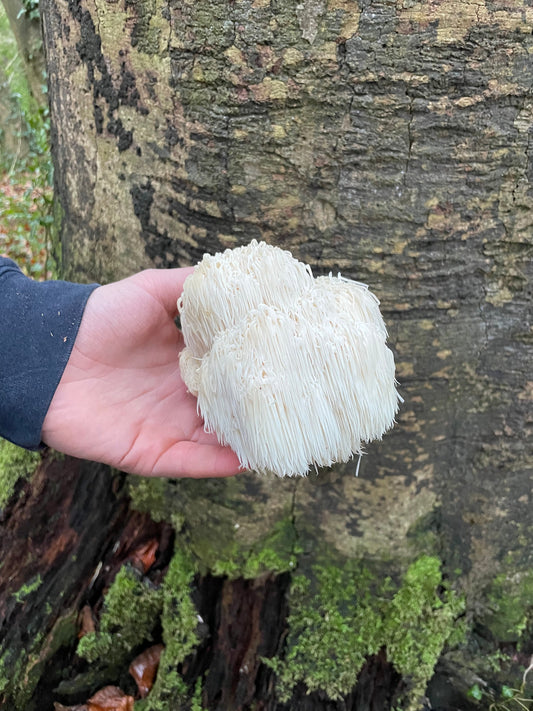NUTRITION
Oyster mushrooms are a fantastic addition to a balanced diet. They are low in calories and fat, with absolutely no cholesterol, making them a great option for those looking to maintain a healthy weight.
One cup of oyster mushrooms contains just 28 calories, along with 1g of fat, 2g of dietary fibre, and 3g of protein.
Vitamins, Minerals, and Antioxidants
- Niacin: Essential for the metabolism of nutrients and the proper functioning of almost every cell in the human body.
- Vitamin D: One of the few food-based sources of vitamin D, particularly when exposed to UV light.
- Iron: Plays a key role in red blood cell production. One cup of oyster mushrooms provides 12% of the recommended daily iron intake, making them an excellent addition to plant-based diets.
Oyster mushrooms are also a natural source of: Riboflavin, Potassium, Vitamin B6, B Vitamins, Folic acid (folate), Magnesium, Vitamin C, Pantothenic acid, and Amino acids.
8 Notable Aspects of Oyster Mushrooms
1. A Natural Support for the Immune System
Oyster mushrooms contain beta-glucans, which are widely studied for their role in supporting immune balance.
These mushrooms are also rich in antioxidants, which help combat oxidative stress, a factor linked to ageing and environmental damage.
2. A Flavourful, Low-Cholesterol Alternative
With their naturally savoury, umami-rich flavour, oyster mushrooms make an excellent meat substitute in various dishes.
Certain studies have explored the potential effects of oyster mushrooms on cholesterol and triglyceride levels, as well as blood sugar balance in different populations. (1)
3. A Natural Source of Vitamin D
Vitamin D plays an important role in overall well-being, yet it can be difficult to obtain from food alone—particularly in colder climates.
Mushrooms exposed to UV light are one of the few plant-based sources of naturally occurring vitamin D. Some research suggests that vitamin D contributes to normal blood pressure regulation. (2)
4. A Source of Natural Compounds Studied for Heart Health
Oyster mushrooms contain ergothioneine, a naturally occurring amino acid that has been widely studied for its role in various bodily processes.
This compound has been the subject of research related to oxidative stress, cellular protection, and heart health.
5. A Natural Source of Key Nutrients for Bone Health
Oyster mushrooms provide magnesium and vitamin D, two nutrients that contribute to calcium metabolism.
Since calcium alone is not enough for strong bones, these additional nutrients play an important role in bone structure and maintenance.
6. A Rich Source of Bioactive Compounds
Oyster mushrooms contain beta-glucans, ergothioneine, and antioxidants, all of which are widely researched for their potential roles in inflammation management and oxidative balance.
Ongoing studies continue to explore how these natural compounds contribute to overall well-being.
7. A Well-Researched Functional Food
Certain studies have investigated the potential effects of mushrooms, including oyster mushrooms, in relation to cellular health.
As part of a balanced diet, mushrooms contain a variety of naturally occurring compounds that continue to be the focus of scientific research. (3)
8. A Natural Source of Ergothioneine
Ergothioneine is a unique amino acid that has been studied for its role in cellular function, oxidative stress, and environmental resilience.
Because of this, mushrooms—including oyster mushrooms—are frequently explored in relation to brain health and ageing.
The Bottom Line
Oyster mushrooms don’t just taste great—they’re also packed with a range of natural nutrients and bioactive compounds that have made them a fascinating subject of research.
In addition, oyster mushrooms are one of the easiest mushrooms to grow at home. Check out our oyster mushroom grow kits in the shop section of this website.



